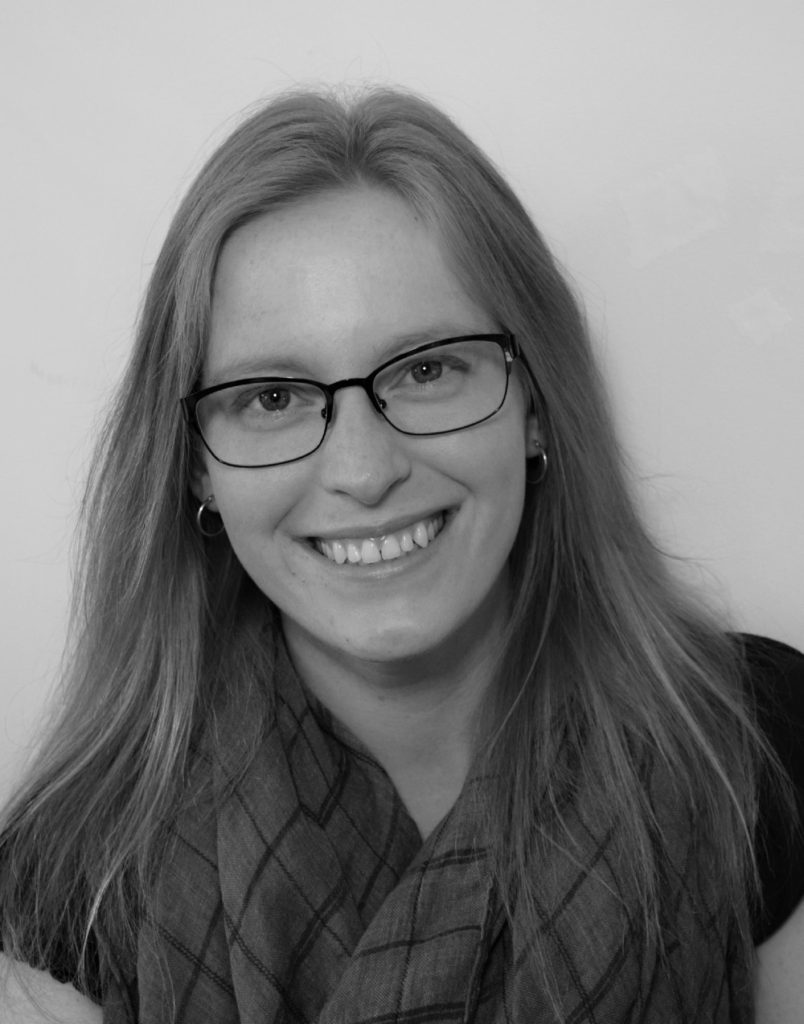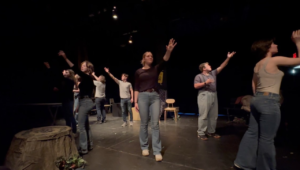Dramaturgy Student Wins Prize Promoting Women Playwrights
By Maria Rodriguez

With a name like Catholic University, and a Drama department named for it’s founder, a priest, one might not at first guess look at the Hartke Theater as a source of advocacy for women playwrights.
Lindsay Adams, female playwright and Catholic University graduate student in the MFA playwrighting program, has challenged that public perception by winning the Judith Barlow prize for student playwrights.
The Judith Barlow prize was begun by History Matters/Back to the Future’s initiative One Play at a Time. History Matters/Back to the Future is an organization that seeks to “promote the study and production of women’s plays of the past in schools and theaters,” according to their website. The organization began One Play at a Time, inviting professors to dedicate one class per semester to a play by a woman playwright, detailing a list of such plays and playwrights on their website for professors to choose from.
Students of professors who chose to engage in the initiative were invited to submit a play of their own for an award of $2500 for first place, with an additional $500 awarded to the professor who took part in One Play at a Time.
Adams’ professor, Patrick Tuite, Chair of Catholic University’s Drama Department heard about the initiative and the prize at the ATHA (Association for Theatre in Higher Education) conference this year. At a focus group, a woman introduced the idea of One Play at a Time and the Barlow Prize.
“The gist of her argument was this: we don’t teach the works of female playwrights enough.That there’s not equal representation in most Theater courses and English courses,” said Tuite.
Tuite realized that much of what the initiative was trying to promote, CUA’s Drama department did already. In both courses and in the mainstage season of shows produced by the department, women playwrights were indeed being features.
So Tuite posted information about the prize to the department to see, and kind of forgot about it.
The prize grabbed the attention of some of the department, though. Jon Klein, Head of the M.F.A Playwrighting program, mentioned the prize in a class Adams was taking in her first semester as a graduate student at CUA.
“I was very excited by their mission of getting female playwrights taught in college classes,” said Adams.
She decided to submit a play History Matter/Back to the Future in the hopes of winning the prize.
“I knew that I could learn so much from hearing my play read aloud and seeing how an audience responds to it,” said Adams.
It was Adams who asked Tuite to teach a course on the list so that she would be eligible to apply. Tuite jumped at the opportunity to teach Aphra Behn The Rover, a play he thought a perfect study for a dramaturgy course.
Adams sent in her application, which included a full script of her play, and a recommendation from Dr. Tuite.
“I got the call on St. Patrick’s Day, actually during a break in the middle of my class with Dr. Tuite, so I was able to tell him right away,” said Adams.
Adams’ award-winning play Her Own Devices, told the story of a young girl with a disability who is forced to spend her life in a lab, doctors running tests on her.
“I wanted to tell the story of someone living with a disability and how isolating that experience can be…I am fascinated by the limitless worlds that can be created in the human mind, and in Her Own Devices I explore how the imagination can be used as a coping mechanism,” said Adams of her play.
That fascination with the human mind is just the sort of thing a good playwright needs, especially a female playwright. Intentionally focusing on the works of women gives, “a different perspective” said Tuite.
“We should care about women playwrights, just like we should care about playwrights of color, because they are part of our society. We learn from being exposed to experiences outside our own,” said Adams.
Tuite agrees, and thinks that is just what makes Adams so special.
“I think Lindsay is powerful, very bright, very funny, very caring and she is willing to take risk to get her story produced, willing to take risk in her storytelling, very courageous in that regard,” said Tuite
All of these traits, in both the eyes of Tuite and the prize panel, singled out Adams, and made her work worthy of winning this prize.







